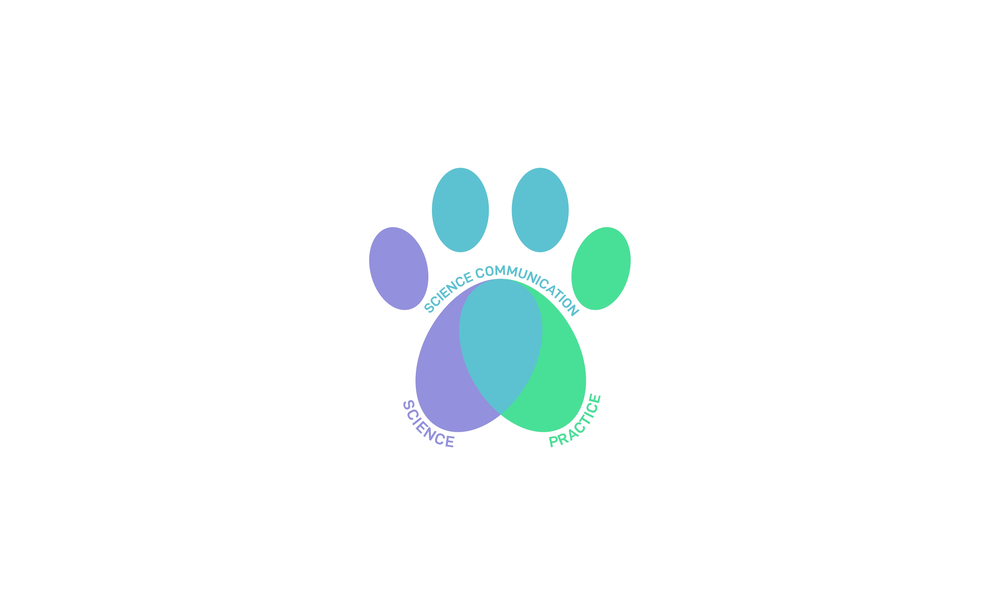Table of Contents:
Understanding Dog Development: Key Stages from Puppyhood to Adulthood
Welcome to the fascinating journey of dog development where we delve into the key stages from puppyhood to adulthood. As a prospective or current dog owner, it is crucial to understand the growth phases your canine companion will go through. This knowledge not only fosters a deeper bond with your dog but also equips you with the insights needed for their care and training. In this article, we'll explore the significant milestones in a dog's life, demystifying the transition from a dependent puppy to a fully-fledged adult.
Dogs experience rapid growth and numerous changes in a relatively short period. Throughout these stages, their needs evolve, requiring adjusted nutrition, exercise, and socialisation strategies. By grasping the various developmental periods, you can anticipate and address the challenges that arise, ensuring your dog's path to adulthood is as smooth and healthy as possible.
Keep reading to uncover the transformations that occur during each pivotal phase and learn how to provide the best support for your canine pal's growth. Armed with this information, you'll be well-prepared to help your dog mature into a well-adjusted and happy adult.
When Does a Puppy Become an Adult Dog?
One of the most common questions dog owners ask is, "what age is a dog an adult?" The answer to this varies not only by individual but also by the size of the breed. Generally, a puppy transitions into adulthood between one and two years of age. However, pinpointing the exact time can be more art than science, as multiple factors influence it.
For small breeds, adulthood can begin as soon as they reach eight to twelve months old. On the other hand, large and giant breeds might not fully mature until they are up to two years old. Therefore, it is essential to understand that while a dog might physically look grown at about a year of age, they may still exhibit puppy-like behaviour well beyond this point.
Diet also plays a crucial role in this transition. Puppies should continue on puppy food until they've reached their breed's specified stop point for growth— typically around 12 months for medium breeds and potentially up to 24 months for larger breeds. This sustained nutritional support is pivotal for their development.
Thus, ascertaining when a puppy is considered an adult involves a blend of acknowledging their physical, behavioural, and nutritional milestones. Only by balancing all these aspects will you be able to support your dog correctly through their journey of becoming a healthy, adult dog.
Understanding Your Dog's Growth Journey
| Stage | Age | Physical Characteristics | Behavioural Characteristics | Training and Socialisation |
|---|---|---|---|---|
| Puppyhood | 0-6 months | Rapid growth, teething | Highly playful, exploratory behaviour | Critical period for socialisation, basic training starts |
| Adolescence | 6-18 months | Physical growth slows, sexual maturity | Increased independence | Training should continue, reinforce socialisation |
| Adulthood | 18 months - 7 years | Fully grown, physically mature | More predictable behaviour | Advanced training opportunities, regular mental and physical exercise |
| Senior | 7 years and up | May show signs of ageing, graying muzzle, less active | More restful, possibly less tolerant of stress | Adjustments to exercise, continued mental stimulation |
Growth Milestones: Recognising the Transition from Puppy to Mature Dog
The transition from puppy to mature dog is marked by several growth milestones that are critical to recognise. Monitoring your dog's development can help ensure they are on the right track and allow for any necessary adjustments to their care. Here, we'll discuss how to identify these milestones and understand their significance.
Physical changes are often the most noticeable indicators of maturity. You can witness a gradual decrease in growth rate, and eventually, growth plates in the bones will close, signifying that the dog has reached its full size. This physical maturation is accompanied by the development of permanent teeth and the completion of the fur's transformation to its adult texture and colour.
Behaviourally, puppies begin to demonstrate more sophisticated social skills, with a decrease in indiscriminate play and an increase in structured interactions with humans and other dogs. They also start to exhibit signs of sexual maturity, which, depending on the owner's choices, may lead to spaying or neutering.
Recognising these growth milestones is not merely about watching for changes. It is about engaging with your dog's health and behavioural progression, adjusting your approach to training, socialisation, and care as needed. By being proactive and responsive during this phase, you can aid your dog in maturing into a stable and well-adjusted adult.
Feeding Your Growing Dog: When to Switch from Puppy to Adult Food
Proper nutrition is a vital component of your dog's development. Deciding when to switch from puppy to adult food is a significant decision that can impact their overall health. Knowing the optimal timing for this transition is essential for providing your dog with the right support as they grow.
Puppy food is designed to be nutrient-rich, supporting the rapid growth and energy requirements of young canines. As a dog approaches maturity, their nutritional needs shift, necessitating a change to adult dog food, which has a different balance of nutrients more suited to a slower metabolism.
The transition should be made gradually over a period of several days. Start by mixing a small amount of adult food with the puppy food, and steadily increase the proportion of adult food while decreasing the puppy food. This method helps prevent digestive upset and allows your dog to adjust to the new food seamlessly.
It is crucial to consult with a professional — such as a vet or a canine nutrition expert — to get personalized advice for your dog, considering their specific breed, size, health conditions, and lifestyle. They can guide you on not only when but also how to make the change to ensure an appropriate and smooth dietary shift for your dog.
The Adolescent Phase in Dogs: Navigating the Teenage Years
The adolescent phase in dogs is akin to the teenage years in humans, a time filled with energy, curiosity, and sometimes, rebellion. This stage begins when a puppy's period of rapid physical development slows, and their focus shifts to exploration and testing boundaries. It is a critical time for reinforcing discipline and establishing a lasting relationship between you and your dog.
During this period, it's vital to maintain a consistent routine and structure for your adolescent dog. Continuing with regular training sessions and exercise can help channel their energy positively and prevent the development of unwanted behaviours. Mental stimulation, through interactive toys and problem-solving games, is as important as physical activity to keep their mind engaged.
It's also essential to understand that your dog is experiencing a lot of changes internally. Hormonal shifts can lead to an increase in confidence, which may sometimes manifest as disregard for previously learned signals or rules. Patience and positive reinforcement during this time are keys to guiding your dog through the adolescence phase successfully.
Remember, this is a temporary phase that, with the right approach, will lead to the development of a calm and well-behaved adult dog. Welcoming support from a dog training professional can be beneficial during this phase too, offering strategies tailored to your dog’s individual needs.
Identifying the Start of Adulthood in Different Dog Breeds
Each dog breed matures at its own unique pace, meaning the start of adulthood can significantly differ from one breed to another. Recognizing when your canine has reached this stage can be challenging, but there are signs and age-related thresholds to help identify this new chapter in their life.
Breed size is a primary factor affecting the maturity timeline. Smaller breeds tend to reach adulthood faster than larger breeds. This understanding is crucial as it impacts decisions related to diet, health care, and behaviour management. It's not just about age; it's about the catered care to meet their breed-specific needs.
As a dog owner, you should be familiar with the typical adult age range of your dog's breed. For mixed-breed dogs, knowing the size and characteristics of their predominant breed can provide a reasonable estimate. Still, noting individual behaviour and physical developments is most telling.
Regular veterinary check-ups are integral in assessing whether your dog has transitioned into adulthood. Vets can provide valuable insights based on physical examinations and breed knowledge. They evaluate several markers, including bone development, reproductive status, and overall health, to determine maturity.
Understanding your dog's breed-specific maturation can greatly enhance your ability to provide the right care at the right time. An informed owner can make all the difference in nurturing a puppy into a healthy, happy adult dog.
Senior Dogs: Preparing for the Later Stages of Your Dog's Life
As a dog transitions into their senior years, it is essential to prepare for the changes this stage will bring. This preparation can help ensure they remain comfortable and content throughout their golden years. It involves adjustments in various aspects of their care to cater to their evolving needs.
"Caring for a senior dog is about providing a gentle, nurturing environment that accommodates their slower pace of life."
Dietary considerations become increasingly important as your dog's metabolism slows. They may require food with different nutrient profiles to support joint health and energy levels. Regular health screenings become pivotal in detecting age-related conditions early when they are more manageable.
Adaptations to their living space can also improve their quality of life, such as providing orthopaedic beds to alleviate pressure on ageing joints or using ramps to help them navigate steps. It is also essential to maintain an exercise routine, adjusted to their comfort level, to support their mobility and mental health.
Moreover, your senior dog may require more frequent rest periods throughout the day and could benefit from a peaceful place in your home free from commotion. It's important to note changes in behaviour or daily habits, as these may indicate discomfort or health issues that need addressing.
Preparing for the later stages of your dog’s life is not just about responding to age-related changes, but anticipating them. With thoughtful planning and adjustments, you can provide your senior dog with a supportive and nurturing environment for their well-deserved restful years.
Behavioural Changes: What to Expect as Your Puppy Matures
As puppies grow and develop, their behaviour often changes in noticeable ways. Recognising and understanding these changes can help dog owners better support and guide their pets through the maturing process. Let's explore what behavioural shifts you might expect as your puppy transitions toward adulthood.
Initially, a maturing puppy may show increased independence and a desire to explore their environment. This heightened curiosity, while a normal part of development, requires a watchful eye to keep them safe.
Energy levels in puppies can also fluctuate. An adolescent dog may display spurts of high energy, intermixed with periods of rest. This uneven energy pattern calls for a balance of exercise and downtime, ensuring that your growing dog neither becomes hyperactive nor lacks sufficient stimulation.
Owners may also witness the emergence of protective or territorial instincts as a puppy matures, which can be addressed and managed through positive reinforcement and consistent training. It is important to establish and reinforce boundaries to cultivate good behaviour.
Additionally, the maturing process may bring about changes in the social dynamics with other pets and people. A previously outgoing puppy may become more reserved, or vice versa. Socialisation efforts should continue, encouraging positive interactions and helping your dog to remain well-adjusted.
Every dog is an individual, and while these trends are general, your puppy's behavioural changes may vary. Maintaining an active role in their growth, being responsive to their needs, and seeking professional advice when necessary can help ensure these behavioural transitions are as smooth as possible.
Health Considerations During Your Dog's Development
Attending to your dog's health is crucial during their periods of growth and development. Ensuring that your pet grows into a strong and healthy adult requires monitoring and adapting to their changing health needs. This section outlines the key health considerations to keep in mind throughout your dog's developmental stages.
Firstly, vaccinations play a vital role in protecting your puppy from common canine diseases. Follow the vaccination schedule provided by your vet and ensure that boosters are administered to maintain immunity over time.
Parasite prevention is another critical area, as fleas, ticks, and worms can cause serious health issues. Regularly administering preventative treatments can keep these pests at bay and contribute to your dog's overall well-being.
Socialisation affects not only behaviour but also health, as a well-socialised dog is likely to experience less stress and anxiety. A stress-free environment can positively impact their immune system and general health.
Additionally, keep an eye on your pet’s dental health, as oral hygiene has significant implications for overall health. Brushing teeth, using dental treats, or professional cleanings can prevent dental diseases that might affect their organs or lead to tooth loss.
Engage in regular veterinary check-ups, especially during key growth phases. These check-ups can detect potential health problems early, allowing for timely treatment and better outcomes.
Remember, managing your dog's health during development is not just about reacting to issues as they arise, but proactively creating habits and routines that promote a lifetime of vitality and happiness.
The Importance of Training Throughout Your Dog's Growth Stages
Training is an integral part of your dog's development and should be maintained consistently throughout every stage of their growth. It is the foundation for helping your pet to understand their role within your family and how to interact safely and appropriately with the world around them. Here's a closer look at the significance of ongoing training.
Dogs are learning continuously from their environment and experiences, making consistent training throughout their life stages essential. Early training in puppies establishes basic commands and helps prevent the formation of bad habits. As your dog grows, their learning capacity and understanding deepens, allowing for more complex commands and behaviours to be taught.
In the adolescent phase, reinforcement of training is particularly crucial as dogs test their boundaries and establish their independence. Maintaining firm and consistent training during this stage helps reinforce good behaviour and address any emerging issues before they become problematic.
As your dog reaches adulthood, training should not wane. Adult dogs can and should learn new skills or engage in training that reinforces what they have already learned. Continuous training fosters mental stimulation, which is beneficial for their cognitive function, and helps to strengthen your bond with them.
Professional training classes can offer valuable support and guidance for owners at each stage of their dog's development. Whether in a group setting or individual sessions, a professional can tailor training to your dog’s temperament and learning style.
Ultimately, the importance of training lies in its ability to enrich the lives of both dogs and their owners. It ensures safety, strengthens companionship, and enables dogs of all ages to live harmoniously within their human families and communities.
Conclusion: Embracing Each Stage of Your Dog's Journey to Adulthood
In summary, the pathway to adulthood for a dog is a remarkable process, filled with various growth stages and milestones. By understanding and embracing each phase, dog owners can provide the best care and support that meets the evolving needs of their beloved dog. From the playful exuberance of puppyhood to the steady maturity of adulthood, each stage offers unique challenges and opportunities for bonding and enrichment.
It is important to remain patient and consistent as your puppy grows, paying close attention to their physical and behavioural changes. With a keen eye, you can make the necessary adjustments in their diet, exercise, socialisation, and training, ensuring a well-balanced development. Being proactive about health check-ups and maintaining open communication with a veterinarian can help your dog maintain optimal health throughout their life stages.
As dog owners, it is our responsibility and joy to guide our canine companions along their developmental journey. By providing unwavering love and the right support at the right time, we can help them flourish into happy, healthy adult dogs. Cherish every moment of this journey, as it deepens the profound connection we share with our dogs.
Frequently Asked Questions About Canine Growth Phases
At what age is a dog considered fully mature?
A dog is considered fully mature between 1 and 2 years of age, with small breeds often reaching maturity around 8-12 months, and large breeds sometimes taking up to 24 months to fully mature.
How long does the puppy food stage last?
Puppy food stage lasts until a dog reaches the end of its growth period: approximately 8-12 months for small breeds, 12 months for medium breeds, and up to 24 months for large or giant breeds.
What are the main developmental stages of a dog?
Dogs go through four main developmental stages: Puppyhood, Adolescence, Adulthood, and Senior years, each characterized by specific physical and behavioral developments.
When does a dog start and end adolescence?
A dog's adolescence begins at around 6-18 months of age and lasts for about a year, with variations depending on breed size and individual development.
What behavior changes can be expected as a puppy matures into an adult?
As a puppy matures, you may observe increased independence, heightened curiosity, fluctuations in energy levels, and potential development of protective or territorial behaviors. Continuous training and socialization are essential to manage these behaviors effectively.








